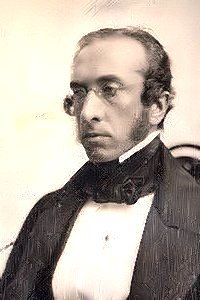Introduction
Born: May 12, 1809, Boston, Massachusetts.
Died: November 16, 1894, Boston, Massachusetts.
Buried: Mount Auburn Cemetery, Cambridge, Massachusetts.

Born: May 12, 1809, Boston, Massachusetts.
Died: November 16, 1894, Boston, Massachusetts.
Buried: Mount Auburn Cemetery, Cambridge, Massachusetts.

Robert was the son of Thomas Lindall Winthrop and Elizabeth Bowdoin Temple. He married three times, to Elizabeth Cabot Blanchard (1832), Laura Elizabeth Derby (1849), and Adele Granger Thayer (1865).
He attended the Boston Latin School, and graduated from Harvard University in 1828.
After studying law with Daniel Webster, he was admitted to the bar in 1831 and practiced in Boston.
He served in the Massachusetts House of Representatives (1835–40), and served as Speaker of the House (1838–40). He was elected US Representative from Massachusetts as a Whig to the 26th United States Congress to fill the vacancy caused by the resignation of Abbott Lawrence. He was reelected to the 27th Congress and served from November 9, 1840, to May 25, 1842, when he resigned.
He was subsequently elected to the 27th Congress to fill the vacancy caused by the resignation of his successor, Nathan Appleton. He was re-elected to the 28th and to the three succeeding Congresses. He served from November 29, 1842, until to July 30, 1850, and was the Speaker of the House during the 30th Congress.
Winthrop was elected a Fellow of the American Academy of Arts and Sciences in 1849. After Daniel Webster resigned from the United States Senate to become Secretary of State in 1850, Winthrop resigned from the House and was appointed by fellow Whig, Governor George Briggs, to fill the remainder of Webster’s Senate term.
Later that year, Winthrop won a popular plurality in the race for Massachusetts Governor, but as the state Constitution required a majority, the election was thrown into the legislature. The same coalition of Democrats and Free Soilers defeated him again.
His final venture into elected political office was as a presidential elector on the Whig ticket in 1852. Afterwards, Winthrop became an independent, unsuccessfully supporting Millard Fillmore, John Bell, and George McClellan.
With his political career over at age 41, Winthrop spent the rest of his life in literary, historical, and philanthropic pursuits.
He was a major early patron of the Boston Public Library, and president of the Massachusetts Historical Society (1855–85), during which time he wrote a biography of his ancestor John Winthrop.
He served as president of the Massachusetts Bible Society for several years, where he advocated that Christian morality was the necessary condition of a free society. His most notable Christian philosophy for governing men, was: Men, in a word, must necessarily be controlled either by a power within them or by a power without them; either by the Word of God or by the strong arm of man; either by the Bible or by the bayonet.
Winthrop’s most notable contributions came as permanent Chairman and President of the Peabody Education Fund Trustees, which he served from 1867 to his death.
As well as steering the contributions of the Peabody Trust, Winthrop gave his own money to various Southern schools, the most long lasting of which was the $1500 of seed money provided to a teacher’s college that renamed itself Winthrop University in gratitude.
He became a noted orator, delivering the eulogy for George Peabody in 1870 and at the ceremony that opened the Washington Monument in 1884.